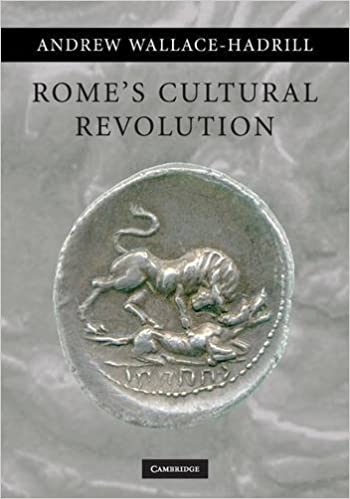‘Our manner of speech is in flux’: these are the words of Varro, the first century BC Roman encyclopaedist, as mediated through my slightly loose translation. Varro wasn’t thinking of individuals’ use of language when he wrote this – though, no doubt, his is a point that applies over the course of the life of an individual, just as it does over the course of a language’s life. Instead, he was participating in a highly self-aware Roman discussion about the developing use of the Latin language.
For many people who know some Latin today, it is easy enough to imagine the language as an impressively logical system – of clearly defined grammatical tables, of distinct word endings, and (more generally) of order and rational control. This image of the Latin language is in significant measure a product of the habits of teaching and learning favoured by 19th century educators: hefty Victorian grammatical textbooks are just one tangible artefact of their influence.
What I hadn’t really been aware of before this week was how the Romans themselves imposed considerable (conscious) control over the nature and structure of their language. This comes through in a range of first century BC discussions – in authors like Varro, Cicero and indeed Julius Caesar – of which I’m now aware. And it reflects an older Roman (and Greek) tradition of thinking about language use.
My education in this area has come about through reading Andrew Wallace-Hadrill’s Rome’s Cultural Revolution, a text I’ve had on my shelf for several years but which I’ve only just found the time to get into.

Romans of the first century BC were sometimes acutely conscious of linguistic differences in the way Latin was spoken (and written). Just as modern English speakers can effortlessly spot the differences between regional accents, national accents, formal and informal speech (etc), so too ancient Latin users would have spotted similar differences. But what were the boundaries of correct usage in amongst the (perfectly natural) linguistic variety that could be observed?
This is a question, Wallace-Hadrill suggests, that assumes an importance only with Rome’s – and Latin’s – imperial extension in the first century BC: ‘hand in hand with an insistence that others use one’s language is the establishment of authoritative standards by which to lay down what that language is’.
For Cicero, writing in his Brutus on the history of oratory, there was a pure use of Latin which all good orators – and indeed all good speakers of the language – should aim to practise. There was a time, Cicero thinks, when all Romans would speak this pure form of the language as a matter of custom. So what changed? A flood of people of diverse origins, he explains, has entered Rome. They have tainted the language, polluting its proper use!

Cicero’s explanation is strikingly reductive (and prejudiced!) – but it is interesting that he seems to assume that ‘proper’ Latin was only ever spoken at Rome (and that non-Romans were never in command of pure Latinitas). Wallace-Hadrill makes short work of Cicero’s argument, pointing out the myth of ‘purism’ while noting also that ‘purism’ can only be imposed on a language by the imposition of an external authority (e.g. a grammarian!).
Varro, unlike Cicero, was a realist about linguistic change, just as he was about other changes of custom. Old practices can give way to new ones in clothing, building and furniture. Traditional usage in these and other areas has been replaced. The same is true for words. Consuetudo – custom, then (whether linguistic or otherwise), can itself be remade: it is not forever set in stone, as a Cicero might have preferred.
By the end of the first century BC, the power to define consuetudo, when it came to language, seems to have begun to move away from influential patrician figures like Cicero and Varro, who had previously been the key voices in its constitution. From this point, upper class influence on correct Latin usage was no longer to have quite the weight it once did: instead the foremost authorities when it came to defining what was ‘correct’ Latin would soon be professional grammarians. This is an area about which I have more reading to do.

